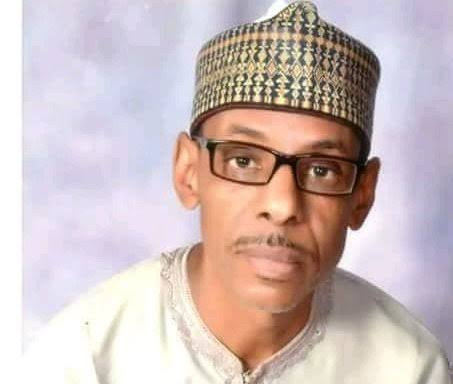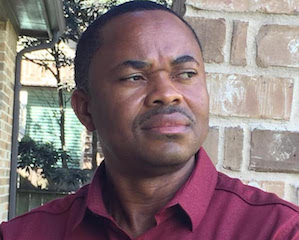Desperados and Democrats, By Hakeem Baba-Ahmed
‘If we are to keep our democracy, there must be one commandment:”Thou shalt not ration justice”. Sophocles
Some months ago, a journalist friend asked me what I thought was wrong with Nigeria.I was taken aback by a question I did not expect from a very senior and experienced journalist.I paused for a long time and then decided to respond with my own question.I asked him if he could be more specific.He threw it back to me.Everything is wrong with our country, he insisted, this time with some level of impatience and exasperation. I told him that he had answered his question himself.Everything? My question succeeded in stalling him. He paused for a moment and then asked how we can solve our most basic problems.
Last week, this friend and I attended the now famous annual Daily Trust Dialogue.It provided an excellent backdrop for a long discussion we had after the event.The Dialogue had assembled a very good panel to scrutinize the manifestoes of leading presidential contestants.The scrutiny was preceded by a brief remark from Malam Kabir Yusuf, Chairman of Board of Trustees of the Trust stable.With his usual wit and bite, he had concluded his survey of the state of the contest for President Buhari’s successor and others who are eying elective positions in a make-or-break election, with the conclusion that there are more desperados than democrats in the contest.
His verdict found no validation in the manifestos of the contestants, according to the eminent panel.They were all well-written pieces of evidence that the contestants understand our problems.Less evident were more specific outlines of how the problems will be solved.The flashes of the contestants captured on short videos filled the gap: give me the power, and I will find the solution.You almost got the image of that old dig at hardened ideologues: ‘I have an answer, who has a problem?’
So it is established that those who want to lead us know what our problems are.That, it appears, is the easy part.The more difficult part is the one muted by Malam Kabir Yusuf: many of the people asking to be trusted to find solutions are actually our biggest problems.Democrats will be those among them who submit to the demands of the democratic process: respecting rules and supporters; relating with the opposition in a manner that does not threaten the entire process or damage its potential for qualitative growth; accepting the will of voters and the judicial process and living to fight another day if they lose, or respecting the opposition as a vital element of the process if they win.Desperados will be politicians who seek power at all cost, including major damage to the democratic process itself.. They treat laws, rules and guidelines as disposable nuisance on their ways to acquire power.They see political parties and loyalties at all levels merely as vehicles for actualization of personal ambitions and egos.
The real tragedy is that our democratic system has always been about the politician, not the people.Of the four contestants whose manifestoes were meticulously scrutinized at the Dialogue, three have changed political parties like soiled underwear.The fourth had been a co- founder of the ruling party, and one of the pillars that has had held up the current administration that produced the President whose helicopter and convoys were stoned by young protesters recently in his home state and Kano.We have had dozens of governors and senators who simply walked away from parties on whose platforms they were elected,to the warm embrace of the party rejected by voters, completely clad in their electorate’s mandates.Politicians are so uncertain that people will vote for them that they engineer their presence at voting points and buy votes with cash.
Some people say it is difficult for eliminate the major limitations which make the continued degradation of the quality of our electoral process and democracy inevitable.They point to the alien nature of democracy. This argument is easily repudiated by the fact that the democratic system, in one form or another, had been alien to most parts of the world, yet it had taken root in many parts.Others say our relative poverty makes it easy to corrupt some of the more hallowed values of the democratic system, yet countries with our levels of poverty have adopted and adapted the democratic system and have made it work.Others say we have value systems that are too deeply entrenched and are violently opposed to the basic philosophical foundations of the democratic process, such that a hybrid system emerges from an uncomfortable cohabitation and eats up its very essence.There are also some who point at developed and old democracies that frequently stumble and fumble, exposing the fragile, unstable and imperfect nature of all democratic systems, which makes ours a member of a fallible family.
The truth is that we do have a ‘system’ that has been contrived out of all of the explanations above.The reason why our democratic system has been reduced to the ego, wealth, ambition of the politician and periodic elections is that it been hijacked by a small ruling elite which competes within itself to acquire power and reinforce itself.It understands that massive wealth is the key to power.It takes you up to a point, and the rest of your journey is largely dependent on your ability to exploit sensitive elements in a plural society, poverty of the voter and the fragile roots of a democratic system that has not firmly registered in his life and livelihood.
Our ruling elite has replaced the basic values of the democratic system with unedifying values of theirs, leaving a shell and empty motions in place to create the impression that the voter is king.By the time the voter lines up to make a choice between the bad and the intolerable, the system would have drastically whittled down his real powers to participate in leadership selection.A non-accountable ruling elite would have been engaged in numerous skirmishes, effectively eliminating personal integrity, evidence of leadership abilities, popularity and commitment to basic values of democratic competition from making an appearance as issues before the voter.There is no space for a committed democrat in our system.Even if he starts as one, he would have been transformed into a desperado by the time he presents himself before the voter.Losing an election in Nigeria is a virtual death sentence, and if you survive to fight in other elections, your soul would have been eaten up by bitterness, leaving behind a level of desperation to avoid another defeat, at all cost.If you still have a drop of humanness and decency left, your opponents’ antics will force you to respond, and that drop will dry up.Look around at the current state of the campaigns.How many committed democrats do you see?Well, one of them may have to lead the re-invention of a democratic system that works for Nigerians, or serve as its undertaker.
Article first published by Vanguard




